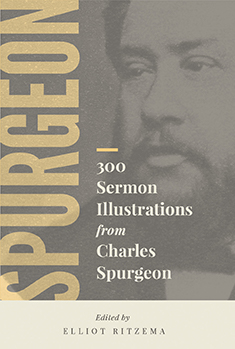Thanksgiving Day gets overshadowed by other holidays in store aisles, porch decorations, and people’s priorities—but preaching about thankfulness will always hold a place in the pulpit. Here are 14 sermon illustrations on Thanksgiving to help you remind your church to follow the admonition of 1 Chronicles 16:34 (“O give thanks to the LORD, for he is good; for his mercy endures forever!”) and show gratitude to God year-round.
1. Blind to blessings
Emerson said that if the stars came out only once a year, everybody would stay up all night to behold them. We have seen the stars so often that we don’t bother to look at them anymore. We have grown accustomed to our blessings.
The Israelites in the wilderness got accustomed to their blessings, and God had to chasten the people (see Num 11). God had fed the nation with heavenly manna each morning, and yet the people were getting tired of it. “But now our whole being is dried up,” they said, “there is nothing at all except this manna before our eyes!” (v. 6).
Nothing but manna! They were experiencing a miracle of God’s provision every morning; yet they were no longer excited about it. Nothing but manna!1
—Warren Wiersbe, quoted in 10,000 Sermon Illustrations
2. Gifts for the master
A gardener had been especially careful in tending one particular rose, which was very fair to look at. But when he went one morning to his favorite rosebush, he found that the flower, of which he had taken such care, was gone. He was very upset, for he thought that some bad boy had stolen into the garden and taken away his best flower.
He was complaining very bitterly of his loss when someone said, “The master has been down in the garden this morning, and he has been admiring this rosebush, and he has taken away that fine bud of which you were so proud.” Then the gardener was delighted that he had been able to grow a flower that had attracted his master’s notice. Instead of mourning any longer, he began to rejoice.
So should it be with anything on which we have set our hearts. Let each one of us say to our Master, “My Lord, if it pleases you to take it, it pleases me to lose it. Why should I complain because you have taken from me what is really your own?”2
—C. H. Spurgeon, quoted in 300 Sermon Illustrations from Charles Spurgeon
3. A good obsession
Don Vicars, an Oregon police officer, was on his way to California for a Harley Davidson convention when a construction zone caused [his] group of motorcycles to stop suddenly. Don had to lay his motorcycle down at high speed and was left with a broken shoulder, broken ribs, and a collapsed lung.
A passerby stopped to aid Vicars. She told him her name, Sally, and said she was a registered nurse. She cradled him in his pain and assured him that help was on the way. When paramedics arrived, Vicars was airlifted to a hospital where he spent 10 days.
Now he is intent on finding and thanking Sally.
“When I woke up [on the pavement],” he says, “she was holding my head. She very calmly talked to me and calmed me. Afterward, she just walked off . . . It’s important to me to find her and thank her.”
Vicars’ wife says her husband’s need to find Sally is “almost an obsession.” In a newspaper article in The Oregonian (10/15/98), Vicars asked that anyone who knew Sally would contact him.
Thanksgiving is a good obsession.3
—Curtis Buthe, quoted in Today’s Best Illustrations, vol. 5
4. Growing gratitude
I’m no master gardener, but in my small-scale gardening, I’ve learned about companion planting. Some flowers, vegetables, and herbs grow better together. They don’t just tolerate one another; they encourage one another’s health and fruitfulness. But some plants can’t grow together. One steals nutrients, blocks the sun, or entices pests that hinder the growth of other plants.
The same is true in our life. Faith, humility, and thankfulness are companion practices, supporting and sustaining one another. As one increases, so do the others. But unbelief and boasting choke out the tiniest seedlings of thankfulness. Whereas humility and gratitude feed off each other, gratitude and pride cannot coexist in proximity. Either we’ll view ourselves as the source of good things and take the credit, or we’ll acknowledge God behind everything we have and redirect the glory to Him. As our lives center on God, gratitude grows. When self-focus sprouts and spreads, gratefulness withers.4
—Dustin Crowe, The Grumbler’s Guide to Giving Thanks:
Reclaiming the Gifts of a Lost Spiritual Discipline
5. Having everything
An estimated 1.5 million people are living today after bouts with breast cancer. Every time I forget to feel grateful to be among them, I hear the voice of an eight-year-old named Christina, who had cancer of the nervous system. When asked what she wanted for her birthday, she thought long and hard and finally said, “I don’t know. I have two sticker books and a Cabbage Patch doll. I have everything!” The kid is right.5
—Erma Bombeck, quoted in 10,000 Sermon Illustrations
6. Helen Keller’s thanksgiving
Helen Keller wrote to famous preacher Phillips Brooks when she was just a child and reflected a spirit of thankfulness that characterized her life: “It fills my heart with joy to know that God loves me so much that he wishes me to live always, and that he gives me everything that makes me happy—loving friends, a precious little sister, sweet flowers, and the warm sunshine, and best of all, a mind that can think and enjoy and a heart that can love and sympathize.”6
—Raymond W. Albright, from Notable Harbour Illustrations: Volume 7
7. A magnet for blessings
If one should give me a dish of sand and tell me there were particles of iron in it, I might look for them with my eyes and search for them with my clumsy fingers and be unable to detect them. But let me take a magnet and sweep through it, and it will draw to itself the almost invisible particles. The unthankful heart, like my finger in the sand, discovers no blessings. But let the thankful heart sweep through life, and as a magnet finds the iron, so it will find in every day some heavenly blessing.7
—Henry Ward Beecher, quoted in Encyclopedia of Sermon Illustrations
8. Thankful in the storm
A man invited a friend to go hear a preacher, saying, “I want you to hear the most thankful preacher I’ve ever heard.”
The two men weathered a storm to hear him preach. On the way they thought nobody would be there; that even the preacher wouldn’t come. But when they got to the little country church, there was the preacher seated on the platform.
The stranger said to his friend, “He has nobody to preach to. There’s a storm outside. It looks like we will have a flood. He won’t have anything to be thankful for tonight.”
“Yes, he will. He’ll thank God for something.”
When the preacher stood up, he bowed his head and prayed, “Dear Lord, it is stormy outside. It looks as if the roads will wash away before we can get out of the church tonight. It’s an awful storm. But we’re thankful that it’s not always this way.”
The only way you can thank God for “all things” is to couple the “all things” of Ephesians 5:20 with the “all things” of Romans 8:28: “And we know that ALL THINGS work together for good to them that love God. . . .” If you really believe that, you can thank God even for the bad things in life.8
—Curtis Hutson, Great Preaching on Thanksgiving
9. Matthew Henry’s gratitude
Matthew Henry, the famous Bible expositor, was once accosted by thieves and robbed of his pocketbook.
He wrote these lines in his diary:
Let me be thankful, first, because I was never robbed before; second, because, although they took my purse, they did not take my life; third, because, although they took my all, it was not much; and fourth, because it was I who was robbed, not I who robbed.
There’s always something to thank God for.9
—Curtis Hutson, Great Preaching on Thanksgiving
10. A mother’s list
When I was a young mother with two preschoolers, I was often overwhelmed. One night I fell into bed, exhausted. I poured out my frustrations to God. “The kids won’t mind, the house is a mess, my husband doesn’t seem to care . . .”—the list went on.
Suddenly, a voice said to my heart, “Which one do you want me to take away?” Everything I was complaining about was precious to me. Immediately, I began to thank God for everything on my list—something I continue to do now as a grandmother.10
—Alice Johnson, quoted in Today’s Best Illustrations, Vol. 5
11. Puritans and providence
You have heard, perhaps, of a Puritan who met his son, each one of them traveling some 10 or 12 miles to meet the other. The son said to his father, “Father, I am thankful to God for a very remarkable providence that I have had on my journey here. My horse has stumbled three times with me, and yet I am unhurt.”
The Puritan replied, “My dear son, I have to thank God for an equally remarkable providence on my way to you, for my horse did not once stumble all the way.”
If we happen to be in an accident by railway we feel so grateful that our limbs are not broken. But should we not be thankful when there is no accident? Is not that the better thing of the two? If you were to fall into poverty, and someone were to restore you to your former position in trade, you would be very grateful. Should you not be grateful that you have not fallen into poverty? Bless God for his unknown benefits. Extol him for favors that you do not see, always giving thanks to God for all things.11
—C. H. Spurgeon, quoted in 300 Sermon Illustrations from Charles Spurgeon
12. Thanksgiving because of a new perspective
I heard of a fellow who wished to dispose of his home. He called his real estate agent and said, “I want to run an ad in the paper to sell my home. Get rid of it as quickly as you can. I’m tired of this old place.”
The agent said, “Tell me something about your home so I can run a good ad.”
The man told him how many rooms it had. It had carpet. There were expensive shrubs in the yard. He told about some fruit trees in the back yard and many other advantages. He described the house in detail.
When he finished, the agent said, “I’ll read it back to you and you tell me how it sounds.”
He read the ad—about this beautiful three-bedroom home with two baths, a good stand of grass, fruit trees in the backyard, new roof, central air-conditioning, a remodeled carport for two cars. He kept on reading until the owner stopped him.
“Wait a minute! Wait a minute! Stop. That house is not for sale. All my life I’ve been wanting a place like that, but I didn’t realize I had one until now!”12
—Curtis Hutson, Great Preaching on Thanksgiving
13. Thankful for mosquitoes
In February 2000, Mozambique experienced its largest rainfall in more than fifty years. By March 2, there were an estimated 100,000 people who needed to be evacuated and around 7,000 people who were trapped in trees.
One Mozambique minister named Samuel Naftal gave thanks to God and mosquitoes for saving his life. As Samuel, along with 16 other people, clung tightly to the limbs of trees for 2 days, he began to preach. All of them hoped his preaching would keep them alert to their surroundings.
“I helped some people climb onto the roof of my house, and climbed into a tree with others,” said Pastor Samuel. “We saw televisions, furniture and dead calves floating past. Everything was destroyed. The people asked me to preach to them, so that they would stay awake. Today, I thank God for the mosquitoes, because they prevented me from falling asleep and falling into the water. I would have been simply swept away.”13
—Peter Kennedy, Preaching Illustrations Vol. 1
14. “Wondrous things” in the worst of times
It was the worst of times. In the first half of the seventeenth century, Germany was in the midst of wars and famine and pestilence. In the city of Eilenburg lived a pastor by the name of Martin Rinkart.
During one especially oppressive period, Rinkart conducted up to 50 funerals a day as a plague swept through the town and as the Thirty Years’ War wreaked its own terror on the people. Among those whom Rinkart buried were members of his own family.
Yet during those years of darkness and despair, when death and destruction greeted each new day, Pastor Rinkart wrote 66 sacred songs and hymns. Among them was the song “Now Thank We All Our God.” As sorrow crouched all around him, Rinkart wrote:
Now thank we all our God
With hearts and hands and voice,
Who wondrous things hath done,
In whom His world rejoices;
Who, from our mothers’ arms,
Hath blessed us on our way
With countless gifts of love,
And still is ours today.
Rinkart demonstrated a valuable lesson for us all: Thankfulness does not have to wait for prosperity and peace. It’s always a good time to praise God for the “wondrous things” He has done.
—Our Daily Bread, October 12, 1998 (quoted in 10,000 Sermon Illustrations)14
Related articles
- 22 Thanksgiving Worship Songs to Lead This Season
- The Role of Thanksgiving in the Early Church
- 7 Prayers of Thanksgiving for Family, Friends, and the Gift of Grace
Related products
The Grumbler’s Guide to Giving Thanks: Reclaiming the Gifts of a Lost Spiritual Discipline
Regular price:

Preaching Illustrations Vol.1: Hit Your Target with 1000 New Illustrations
Regular price: $39.99
- Warren Wiersbe, God Isn’t in A Hurry, (Baker Books; Grand Rapids, MI, 1994), in 10,000 Sermon Illustrations, Galaxie Software, (Biblical Studies Press, 2002), 77–78.
- C. H. Spurgeon, “Fifteen Years After!” In The Metropolitan Tabernacle Sermons, vol. 53 (London: Passmore & Alabaster, 1907), 69, in 300 Sermon Illustrations from Charles Spurgeon, ed. Elliot Ritzema (Lexham Press, 2017).
- Curtis Buthe, from Leadership, Vol. 20, no. 2. In Today’s Best Illustrations, vol. 5, Christianity Today (Christianity Today International, 2001).
- Dustin Crowe, The Grumbler’s Guide to Giving Thanks: Reclaiming the Gifts of a Lost Spiritual Discipline, (Moody Publishers, 2020), ch. 5.
- Erma Bombeck, Redbook, October, 1992, in 10,000 Sermon Illustrations.
- Raymond W. Albright, Focus on Infinity: A Life of Phillips Brooks. New York: The Macmillan Company, 1961, p. 351, in Notable Harbour Illustrations: Volume 7, Brian Harbour (Wordsearch, 2008).
- Henry Ward Beecher in Encyclopedia of Sermon Illustrations, David F. Burgess (Concordia, 1988), 93.
- Curtis Hudson, Great Preaching on Thanksgiving (Sword of the Lord Publishers, 1987), 15.
- Great Preaching, 15.
- Alice Johnson, Christian Reader, Vol. 36, no. 5. In Today’s Best Illustrations.
- C. H. Spurgeon, “Always, and for All Things,” in The Metropolitan Tabernacle Pulpit Sermons, vol. 19 (London: Passmore & Alabaster, 1873), 65–66, in 300 Sermon Illustrations from Charles Spurgeon.
- Great Preaching, 18.
- Peter Kennedy, Preaching Illustrations Vol. 1, (Wordsearch, 2009), 177.
- Our Daily Bread, October 12, 1998, in 10,000 Sermon Illustrations.











